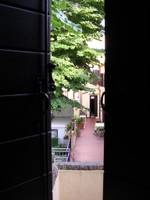
About the Catholica
Previous Posts
Toscana and the Refuges of LightThe Anti-Narnia
Ballad of the White Horse
Red and Black (at the OCP Cafe)
Dvorâk
Polyphonic Bliss
Best. Motet. Ever.
Syndication

News
Seattle CatholicCatholic Exchange
Crunchy Catholicism
Being CatholicCaelum Et Terra
Mystical Rose Herbals
Mary Gardens
Tridentine Tiramisú

St-Martin de Bréthencourt
Chartres Pilgrimage
(muchas fotos!)
Campos Photos
LMSEW Photos
Catholic Artists Today

Official Passion Site
Smallpax Guild
Nicholas Wilton Music
StudiObrien
Via Rosa Rosaries
Regina Doman
Poetry of Pavel Chichikov
Free Literature On the Web

Project Gutenberg
G.K. Chesterton
On Nothing
On Something
First and Last
Europe and the Faith
Belloc - Poetry
More Belloc Poetry
John Henry Newman
Christopher Dawson
Frederico GarcÃa Lorca
Tolkien

Romantic &
Imaginative Theology
Council of Elrond
Anke Eissmann's Art
Angels and Elves
Christianity and Middle Earth
Coulombe Essays
Ardalambion
Gwaith i Pheddain
Arthrand Board
Crazy-Go-Nuts
Homestar RunnerStrindberg & Helium
SuperPope Anime
The Onion Dome
Blogs I Like

Alle Psalite
Andrew Cusack
Angry Twins
Cacciaguida
Church of the Masses
Curt Jester
Dappled Things
Devout Life
Dignare Me Laudare Te
Erik's Rants & Recipes
Flos Carmeli
Give Tongue
Hallowed Ground
The Idyllist
Inn at the End of the World
Jade's Trick
Jelly-Pinched Theatre
Old Oligarch
Open Book
Orthonormal Basis
Sancta Sanctis
Secret Agent Man
Shrine of the Holy Whapping
Video Meliora
Vivid
The Western Confucian
Zadok the Roman
Christendom Blogs
Charlemagne's PalaceThe Christendom Commons
Meet Virginia
Destination: Order
Enchiridion
Fiddleback Fever
JulesArts
Midnight Radio
Nota Bene
¿Qué?
somewhatlost
This Red Rock
West of the Moon
Vestal Morons
Zucchero
<< # St. Blog's Parish ? >>

Archives
- April 2004
- May 2004
- June 2004
- July 2004
- August 2004
- September 2004
- October 2004
- November 2004
- December 2004
- January 2005
- February 2005
- March 2005
- April 2005
- May 2005
- June 2005
- July 2005
- August 2005
- September 2005
- October 2005
- November 2005
- December 2005
- January 2006
- February 2006
- March 2006
- April 2006
- May 2006
- June 2006
- August 2006
- September 2006
- January 2007
- February 2007
- July 2007
Kiss me, I'm Catholic.
Tuesday, July 19, 2005
Green, Green, Green
I did it. I finished my translation of Frederico Garcia Lorca's Romance Sonambulo. What I mainly learned from the experience was that it is really hard to write line after line with feminine endings in English. I also learned that most people who translate Lorca (and they are legion) must not be trying very hard to even aproximate the sound of the original. It can be done, to some extent. Here is the original beautiful Spanish. The thing about Lorca is that he is not as surreal as he seems. He uses very bizarre but illuminating metaphores, and he is very rooted in his homeland of Andalucia. I just wish I knew Spanish better... I must buy Roy Campbell's study of Lorca. It was so good.
I have always loved this poem for its cadences and its strange images that seem to come straight from the uncertain hours before dawn. Reading it, I feel as though I am keeping a vigil and falling in and out of sleep.
In regard to this poem, Lorca said "If you ask me why I wrote 'A thousand tambourines of crystal wounded the dawn,' I will tell you that I saw them in the hands of trees and angels, but I cannot say more: I cannot explain their meaning. And that is how it should be. Through poetry a man more quickly reaches the cutting edge that the philosopher and the mathematician silently turn away from."
I have read several explanations of it - some of them far-fetched - but it describes what could be a real situation. Basically it's about a gypsy smuggler of the sort that haunted a certain region of Andalucia. His girlfriend waits for him every night on her balcony, and one night he is late. He has gotten into an altercation with the Guardia Civil, and he is mortally wounded. He comes back to the house of a friend. The girl, meanwhile, has heard the commotion in the hills. She thinks he's dead, and throws herself into the cistern in despair. A bunch of drunken Civil Guards show up at her house, thinking they will find the smuggler there... It's a kind of gypsy "Romeo and Juliet." Lorca's poem is a twist on an established tradition of ballads about these bandits. He knew the traditional themes, images and meters of his country well, which is one source of his poetic greatness.
This is an insightful post about the Romance Sonambulo and Lorca in general.
I am still not happy about the word veranda, because it means "porch" more than it means "balcony;" but it had the right sound. Very similar to baranda. Tambour is also a little too unnatural - it should be tambourine, but I couldn't let go of it because it fulfilled the meter and the assonance nicely. I really tore my hair out over "Leaving behind a trail of blood. / Leaving a trail of tears." In Spanish it is the beautiful and rhythmic
Dejando un rastro de sangre.
Dejando un rastro de lágrimas.
But I couldn't find anything that worked better. Leaving manta, "blanket," to chime with "Cabra" was also pretty desperate. Oh well. At any rate, I think my version worked out. I especially like the second section, and the lines
Does anyone else like Lorca?
|
Romance Sonambulo
by Frederico Garcia Lorca
Green oh how I love you green.
Green the wind. Green the branches.
The ship on the flowing sea
and the horse on the side of the mountain.
Submerged to the waist in shadow
she dreams on her veranda,
green her flesh and green her hair,
with eyes of frozen silver.
Green oh how I love you green.
Under the gypsy moonlight,
Each thing turns its gaze to her
and she cannot return them.
Green oh how I love you green.
Stars of frost unfolding
come out with the fish of shadow
that opens the road of the morning.
The fig tree chafes at the wind
with the sandpaper of its branches,
and the mountain, a cat creeping,
bristles its bitter hackles.
But who will come? And from where...?
She lingers on her veranda,
green her flesh and green her hair,
the bitter sea all her dreaming.
- Compadre, I want to exchange
my packhorse for your house,
my saddle for your mirror,
my knife for your warm blanket.
Compadre, I come bleeding
from the mountain gates of Cabra.
- If only I could, young man,
I would do it; have no doubt.
But now I am no more I,
nor is my house my house.
- Compadre, I want to die
in my own bed, decently.
My bed with its frame of iron,
covered with linen sheets.
Do you not see the wound I have
from my throat to where my heart beats?
- Three hundred darkening roses
are on your white shirt.
Your blood and the scent of it thicken
rounding your sash about.
But now I am no more I
nor is my house my house.
- Then let me go up, at least,
up to the high verandas.
Let me climb there! let me rise
up to the green verandas.
Balconies of the moon
whence the water rumbles and dances.
Now the two friends are climbing
up to the high verandas.
Leaving a trail of blood.
Leaving a trail of tears.
Trembling on the rooftops
were little tinleaf lanterns.
And wounding the new day dawning,
a thousand crystal tambours.
Green oh how I love you green,
green the wind and green the branches.
The two friends finished climbing.
The long wind went by, leaving
in one's mouth the strangest savor
of gall, mint, and sweet basil.
Compadre! Where is she, tell me,
where is your bitter girl?
How many times she awaited you!
How many times did she wait for you here,
cool her face and black her hair,
on this green veranda!
Over the face of the cistern
the gypsy girl was swaying.
Green her flesh and green her hair,
with eyes of frozen silver.
An icicle of moonlight
sustained her upon the water.
The night became as intimate
as a little village plaza.
Drunks from the Guardia Civil
were at the door, knocking, knocking.
Green oh how I love you green.
Green the wind. Green the branches.
The ship on the flowing sea.
And the horse on the side of the mountain.
I have always loved this poem for its cadences and its strange images that seem to come straight from the uncertain hours before dawn. Reading it, I feel as though I am keeping a vigil and falling in and out of sleep.
In regard to this poem, Lorca said "If you ask me why I wrote 'A thousand tambourines of crystal wounded the dawn,' I will tell you that I saw them in the hands of trees and angels, but I cannot say more: I cannot explain their meaning. And that is how it should be. Through poetry a man more quickly reaches the cutting edge that the philosopher and the mathematician silently turn away from."
I have read several explanations of it - some of them far-fetched - but it describes what could be a real situation. Basically it's about a gypsy smuggler of the sort that haunted a certain region of Andalucia. His girlfriend waits for him every night on her balcony, and one night he is late. He has gotten into an altercation with the Guardia Civil, and he is mortally wounded. He comes back to the house of a friend. The girl, meanwhile, has heard the commotion in the hills. She thinks he's dead, and throws herself into the cistern in despair. A bunch of drunken Civil Guards show up at her house, thinking they will find the smuggler there... It's a kind of gypsy "Romeo and Juliet." Lorca's poem is a twist on an established tradition of ballads about these bandits. He knew the traditional themes, images and meters of his country well, which is one source of his poetic greatness.
This is an insightful post about the Romance Sonambulo and Lorca in general.
I am still not happy about the word veranda, because it means "porch" more than it means "balcony;" but it had the right sound. Very similar to baranda. Tambour is also a little too unnatural - it should be tambourine, but I couldn't let go of it because it fulfilled the meter and the assonance nicely. I really tore my hair out over "Leaving behind a trail of blood. / Leaving a trail of tears." In Spanish it is the beautiful and rhythmic
Dejando un rastro de sangre.
Dejando un rastro de lágrimas.
But I couldn't find anything that worked better. Leaving manta, "blanket," to chime with "Cabra" was also pretty desperate. Oh well. At any rate, I think my version worked out. I especially like the second section, and the lines
An icicle of moonlight
sustained her upon the water.
The night became as intimate
as a little village plaza.
Does anyone else like Lorca?

